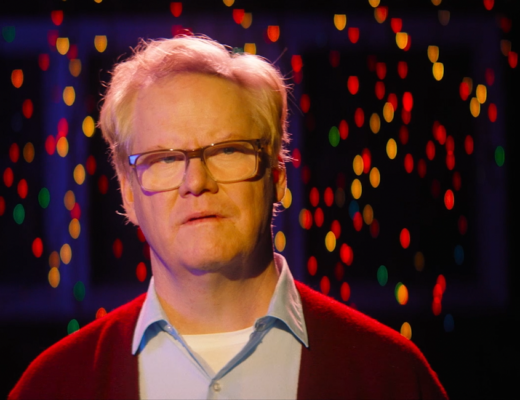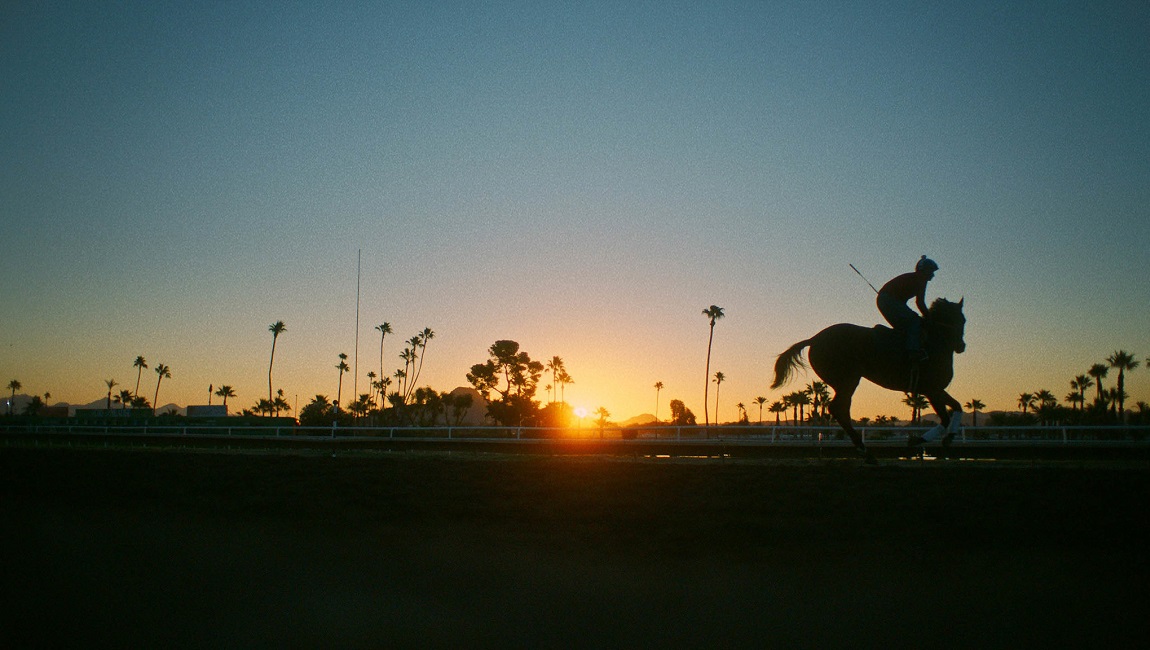Musicals have never exactly been the easiest genre of film to market. 1969’s magnificent flop Hello, Dolly! put an end to the musical’s life as a blockbuster road-show staple, and even then, the mainstream conception of what a musical could be was limited to say the least. Bright, cheery love stories, where happy endings were guaranteed and each came with its own tightly-choreographed dance number, reflected the height of the American interpretation of the genre, and the films generally had more in common with screwball comedies than more serious fare. Enter Bob Fosse, three years after the blockbuster-musical all but died an ignominious death, with a bleak meditation on falling in love as the age of decadence dies and a new, fascist era rises. Cabaret also happens to be one of the best movie-musicals of all time.
In a skillful translation of the stage musical, Fosse takes advantage of his new cinematic medium, creating a nightmarish vision of Weimar Berlin. Low-angle camerawork creates an uncanny effect within the confines of the club, where the act of watching a stage is tinged with the feeling that something is just slightly off. Despite Cabaret only being Fosse’s second feature as a director, he works with confidence, inserting occasional cinematic flourishes that would not work as well on stage, such as the brief tableau scene as Sally and recent British transplant Brian (Michael York) walk the streets of Berlin, which provides a welcome contrast to the frenetic stage numbers. Similarly, Fosse’s distinctive style of choreography sets Cabaret apart from any competition, bringing a marionette-like quality to the cabaret dancers that only enhances their dead-eyed stares and manic dance sequences.
Perhaps the most iconic image to be born from Cabaret, however, (and deservingly so) comes in the form of Liza Minnelli as Sally Bowles, a performance that earned Minnelli both an Oscar and an undisputed place in musical theatre history. As Sally, Minnelli plays the role of a sultry cabaret star as though she were part Labrador, always eager for attention and approval. Minnelli puts an inventive spin on the jaded ingenue archetype, pushing at the very limits of realism until her youthfulness verges on childishness and her character’s wide-eyed wonder begins to look more like derangement. Sally is happily more whirlwind than woman, focusing on dazzling strangers with the same stock witticisms delivered at top speed over and over again, but as the plot progresses, Sally’s shallow exterior corrodes, revealing the strength of Minnelli’s performance underneath. For all her talent and energy, Sally is self-conscious, performative to such an extent that she is easy to disregard as a sulking, pouting diva, a wannabe femme fatale who is, as Brian puts it, “as fatale as an after-dinner mint.” Minnelli takes advantage of this expectation, letting Sally’s genuine hope survive just long enough that even her cynicism is soft, and when she makes a devastating but pragmatic decision in the film’s climax, her bittersweet maturity in the face of Brian’s denial makes her growth all the more heartbreaking. While Cabaret is a film with many exceptional actors, what Minnelli brings to the table is an unrivaled depth which, in combination with her energetic stage presence, make for a once-in-a-lifetime performance.
Equally as compelling, although perhaps not as sympathetic, is Joel Grey’s turn as the Master of Ceremonies. The emcee is less a character than an avatar of sexuality and spectacle, so fluid that a whole host of actors (including Alan Cumming, Raul Esparza, and most recently Eddie Redmayne) have been able to play the role for decades on stage, with fresh interpretations still up for grabs. It’s a timeless role, but what Grey brings is a certain gleeful nastiness that cements the grit of Cabaret. Grey’s charisma is as charming as it is mean, forever pointed outward and refusing to betray the slightest hint of vulnerability, or even the existence of a person behind the performance — he is utterly impenetrable. The emcee’s aura of chaos ensures that the audience can never quite pin him down, but his existence bridges the gap between the personal and the political, and that impenetrability lends itself ingeniously to the film’s thematic resonance. In one particularly chilling shot, as the Nazis sing “Tomorrow Belongs To Me” in countryside gardens, back in Berlin, the emcee grins, nodding his approval. It’s here that Fosse’s thesis comes together: The song is the only one not sung by the emcee or Sally, but the cabaret still looms large, looking at this horror that uses the same language they do, not with fear, but with hunger.
What Grey’s performance lends to the film in thematic significance is matched by Fosse’s masterful use of montage. Each musical number is diegetic, and mostly performed on the cabaret stage as one might expect. Scenes of Sally and Brian’s infatuation intermingle with her performance of “Maybe This Time” to an empty club, without an audience to witness her rare moment of sincerity, and Fosse cuts between the cabaret dancers prancing in lederhosen and Nazis beating a man to communicate the bleak reality of an audience lusting more for war and nationalism than the women on stage. Elsewhere, when Sally performs “Mein Herr,” a sexy, upbeat number rife with her typical swagger, Fosse allows Minnelli’s performance to take center stage, but the absence of montage creates an undercurrent of doubt — instead of believing Sally’s persona, Fosse creates the subconscious understanding that “Mein Herr” is simply the story Sally tells the world (and herself), drawing attention to the quietly sad lyrics that foreshadow the film’s eventual conclusion. As the film unfolds, and the existence of very real real-life counterparts becomes ever clearer, the cabaret becomes a place that eats the pain of its performers and its audience alike, regurgitating either bravado or cruel caricatures of that pain. The same mechanism functions for the film’s political messaging too, so that as Cabaret progresses, the parallels between what happens inside the club and what happens in the wider social sphere do not need to be so obliquely stated, and Fosse does not need to show the horrors of fascism, only the horrors of the cabaret.
As glib as it might be to observe, with its scathing commentary on pre-fascist nationalism, Cabaret is just as relevant now as it was upon its release. Though fifty years have passed since the film’s release and nearly a century since the period it depicts, the conditions required for fascism to take hold are not all that different than they were in the Berlin of the early 1930s. A frustrated middle- and working-class, a lack of clear social identity, and utter humiliation in the face of unobtainable wealth are all among Umberto Eco’s ubiquitous characteristics of a fascist state, and all are present in Cabaret. However, both life and fascism are rarely that simple — the characters of Cabaret may be living in gilded squalor, but they are libertines and progressives. They even laugh Nazis out of the Kit Kat Klub! What Cabaret reminds us is that this is not enough. When tensions rise in Berlin, the cabaret dancers are more than willing to goose-step across the stage, while outside their doors, thugs chant “Juden!” and murder a Jewish character’s dog. For all their transgressive posturing, the cabaret has loyalty to nothing but spectacle — not its performers, not its audience, not even morality — and what appears on the stage is whatever will arouse reaction. What precisely that reaction may be is of little importance — boos and cheers are all just noise in the end. Instead, reality is banished because “we have no troubles here,” until eventually laughing at the fascists becomes laughing with them. No amount of status-quo-disrupting queerness or androgyny or liberal values will save us, or the characters of Cabaret, from becoming complicit in the rise of fascism, and while escapism through art, performance, or sexuality is all well and good, it comes at a price — one day, in the rippling, distorted reflection of the cabaret mirrors, you may notice yourself sitting all too comfortably next to a fascist.
Part of Kicking the Canon – The Film Canon.







